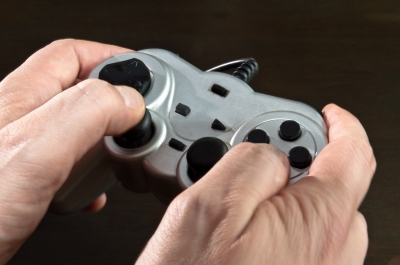Something you might be struggling with is how to control much your teenager uses video games. Teens completely lose track of time while they are playing engrossing and challenging video games. This can become so severe that they become sleep deprived, stop exercising, do all their socializing with other people playing the games and watch their grades plummet. You might feel like your relationship with your teenager has gone downhill. You used to spend time together but now they are always itching to get back on the computer or back to the Xbox. It’s driving you nuts! It also has you very worried.
What do you do?
Before you do anything you have to remind yourself that you’re the parent. This doesn’t mean you become rude or threatening, but it does mean you know it’s your house. You’re paying the bills. You most likely bought the Xbox. Once you firmly believe this and have truly gathered the grit you’ll need to regain who is in charge, you’re ready.
Step 1: You and your child’s other parent need to remember many times in the past when you set a boundary for your child out of love. Go back to when they were really small because it’s very straight-forward when they’re young. You used to make them hold your hand when they crossed the street. Although they wanted to run into the street, you stopped them because you loved them enough to keep them from being hit by a car. They might have protested and even tried to pull their hand away, but you held on tight. When they got a little bit older you didn’t let them go swimming without an adult present. You loved your child enough to tell them they had to wait until someone could sit and make sure they were safe at the pool. You loved them too much to let them drown. They might have protested then too, but you understood that children don’t necessarily see the danger in an activity they really want to do. When they were even older you made them finish their homework assignments. You understood that they didn’t want to do it, and you hated to see them struggle and be frustrated, but you loved them enough to ensure they could read, write and do some math. You get the idea. Come up with at least 10 examples of when you parented out of love even when your child didn’t appreciate the limits you set.
Step 2: You and the child’s other parent need to define the consequences of what will happen if your child continues to be addicted to video games. You don’t need to share this with your kid, you just need to know it for your own sake. You need to know what the metaphorical cars are that might hit your child if he runs into the metaphorical street. For example, “If my daughter continues to play 5 hours of video games per day, she will not develop the social skills she needs to have healthy friendships.” Another example is, “If my son continues to spend his whole weekend playing video games, he will not get the exercise he needs to have a healthy body and live a long, pain-free life.” Keep going with this until you have exhausted the list. Again, this is essential because you have to know the dangers from which you’re protecting your child. You have to see how addictive video gaming can lead to emotional death, physical ailment, stunted development, etc. This has to become scary enough to YOU that you are ready for the fight you will probably have when you set limits.
Step 3: Define the limits and consequences. You and your child’s other parent still need to work together on this. Decide together how often your teenager will have screen time, and what the consequences are if your teen sneaks more game time. Make sure you are both on the same page with this. If you truly think your child has an addiction then it is advisable to completely eliminate any form of computer and online gaming for at least 6 months. Your child needs to “dry out.”
Step 4: Present your plan to your teenager. You will probably get an argument, comments about how you’re stupid, or a lot of tears. Stay extremely calm and even show empathy (Remember, they’ve just lost their favorite activity and access to online friends). Do not bend though. This is not a compromise. You run your house and you are the parent.
I know this is not easy. Once you really walk through these steps you realize how much of an addiction your teenager has. It is alarming to realize the dangers your teen is facing. They are indirect dangers since your teenager is physically at home, in a chair. They are dangers that come from an isolated, inactive lifestyle. Stay the course and be patient. Eventually your child will actually tell you he or she is glad you intervened. This is once they re-engage in the real world. Until then, remember that loving your kid well doesn’t mean always being liked.
Helping teens grow and families improve connection,
Lauren Goodman, MS, MFT




